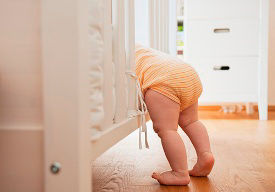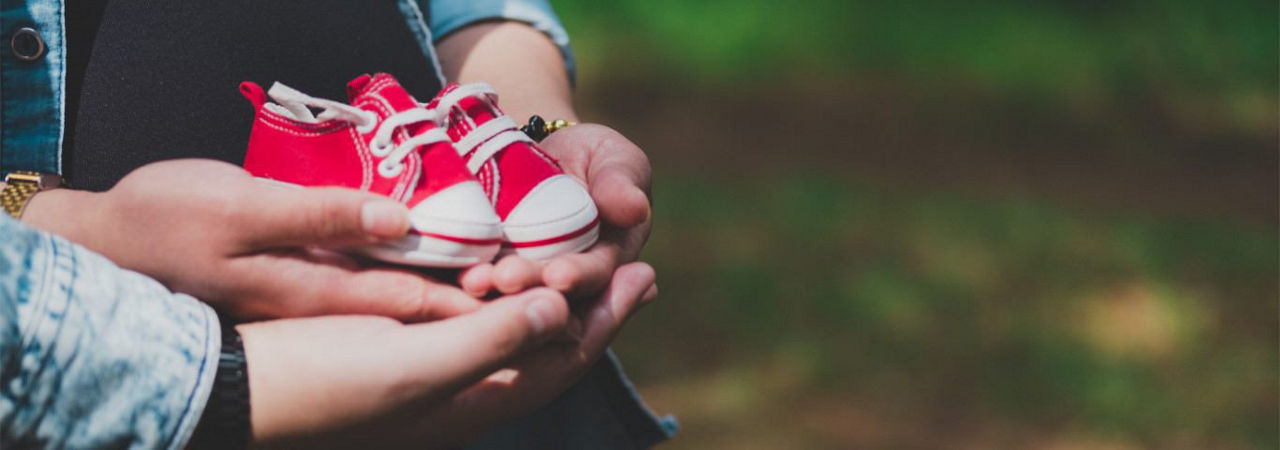Breastfeeding is the best for babies and a healthy diet / maternal nutrition is important when breastfeeding. A decision not to breastfeed can be difficult to reverse. Infant formula is suitable from birth when babies are not breastfed. It is recommended that all formula milks be used on the advice of a doctor, midwife, health visitor, public health nurse, dietitian, pharmacist, or other professional responsible for maternal and child care and the financial implications should be considered. All preparation and feeding instructions should be followed carefully as inappropriate preparation could lead to health hazards.
Childproofing for the First 12 Months
Before your baby starts to crawl, it’s a good idea to start scouting your home for potential danger zones. Start with basic precautions and change or add along the way as your baby develops. Here are the key things to look out for.
Nursery
- Make sure your crib passes international safety standards and is securely fixed.
- Your crib mattress should fit snuggly in your crib and crib slats should not be large enough for a baby’s head to get trapped in.
- Never put pillows, toys or blankets in a crib with a baby unattended or sleeping.
- Consider placing a rug under the changing table and crib to cushion a fall.
- Remove mobiles and other hanging toys from crib once your baby can reach up and touch them.
Electrical Outlets, Wires and Chords
- Cover all outlets with plastic guards.
- Remove all wires and cords away from a crawling baby’s reach so they won’t be able to choke or pull any heavy equipment toward them.
Bathroom
- Never leave your baby unattended in a tub, even for a minute. And to prevent scalding, never position your baby within reach of a faucet.
- Install faucet covers in a tub and lay nonskid floor strips on bathroom floors.
- Secure the toilet cover with a childproof lid lock.
Doors, Cabinets and Drawers
- When your baby starts walking, install knob guards on bathroom doors, storeroom doors and living room doors.
- Move all potentially toxic substances and sharp objects into locked cabinets.
- Purchase childproof safety latches for all cabinets and low drawers, especially in the living room and kitchen.
Windows
- Install grills or childproof locks and make sure there are no nearby furniture or objects that your baby can climb on to get to window level.
- Trim or remove window blind cords so they will be out of reach when your baby grows to a toddler.
Furniture and Stairs
- Once your baby starts crawling, apply plastic guards or cushions on any sharp edges like on tables, countertops and your bed.
- Secure bookshelves, dressers and wobbly tables since they can topple onto children who may try to pull up and stand.
- Always keep small loose objects like coins, buttons, keys or food that babies can choke on away from their reach.
- Install gates and remove clutter from the stairs to prevent toddlers from tripping.
Disclaimer: All content on this Website is provided solely for informational purposes and is not intended as a substitute for medical and/or other professional advice for your specific condition. Please do not disregard medical and/or other professional advice or delay seeking it because of something you have read on this Website. Always seek medical advice before starting any new treatments.


Ask Our Careline
Whatever’s on your mind, we’re here to help



